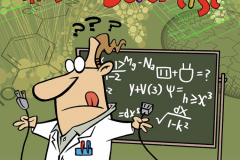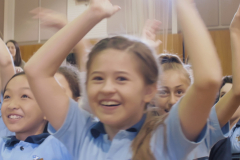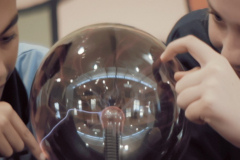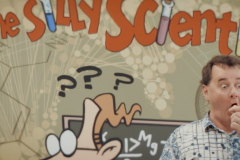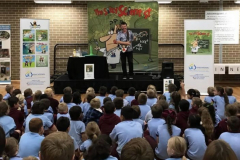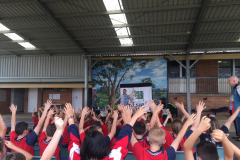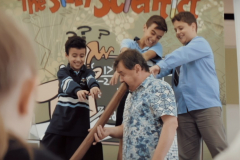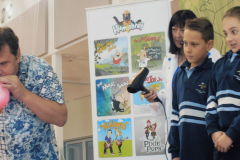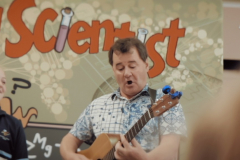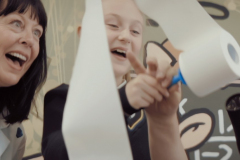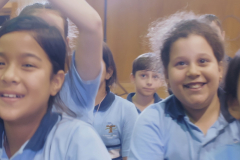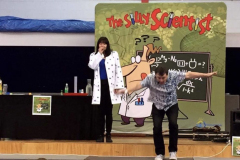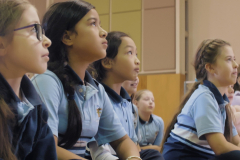The Silly Scientist Show
View Video 
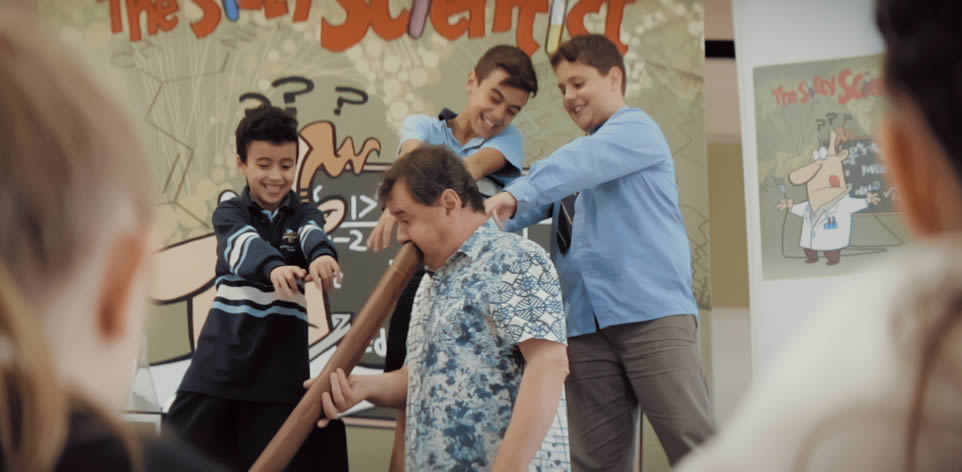
ONLY $8 PER STUDENT (conditions apply, sorry we don’t provide for childcare centres)
“The Silly Scientist Show” is an interactive performance which aims to promote positive attitudes to participating in Science related activities. Our aim is to highlight the ‘everyday’ accessibility of Science in students’ everyday lives. Children will view a performance designed to entertain students with comedy and singing, whilst highlighting many aspects of Science. The show is an engaging and educational experience for your students.
During the performance our presenters demonstrate fun and exciting Science activities from the Science Understanding strands of the F-10 Australian Curriculum Science including; Biological, Chemical, Earth and Space and Physical Sciences.
Promotes ACARA Science outcomes and supports the Australian Curriculum
Show Segments
| Biological sciences | Chemical sciences | Earth and Space sciences | Physical sciences |
| Didgeridoo Getting to know termites The Water Song Our Environment Tapping sticks Living things | The elephant toothpaste The lava lamp Pepsi mentos Play dough show | The Water song The lava lamp Balloon, ping-pong ball and hairdryer Paper roll | The guitar story The optical illusion The stomp rocket The water bag and pencil Lightning ball |
Science Understanding
| Biological sciences | Chemical sciences | Earth and Space sciences | Physical sciences | |
| Foundation | Living things have basic needs, including food and water | Objects are made of materials that have observable properties | Daily and seasonal changes in our environment affect everyday life | The way objects move depends on a variety of factors, including their size and shape |
| Year 1 | Living things have a variety of external features | Everyday materials can be physically changed in a variety of ways | Observable changes occur in the sky and landscape | Light and sound are produced by a range of sources and can be sensed |
| Year 2 | Living things grow, change and have offspring similar to themselves | Different materials can be combined for a particular purpose | Earth’s resources are used in a variety of ways | A push or a pull affects how an object moves or changes shape |
| Year 3 | Living things can be grouped on the basis of observable features and can be distinguished from non-living things | A change of state between solid and liquid can be caused by adding or removing heat | Earth’s rotation on its axis causes regular changes, including night and day | Heat can be produced in many ways and can move from one object to another |
| Year 4 | Living things depend on each other and the environment to survive | Natural and processed materials have a range of physical properties that can influence their use | Earth’s surface changes over time as a result of natural processes and human activity | Forces can be exerted by one object on another through direct contact or from a distance |
| Year 5 | Living things have structural features and adaptations that help them to survive in their environment | Solids, liquids and gases have different observable properties and behave in different ways | The Earth is part of a system of planets orbiting around a star (the sun) | Light from a source forms shadows and can be absorbed, reflected and refracted |
| Year 6 | The growth and survival of living things are affected by physical conditions of their environment | Changes to materials can be reversible or irreversible | Sudden geological changes and extreme weather events can affect Earth’s surface | Electrical energy can be transferred and transformed in electrical circuits and can be generated from a range of sources |
Science as a human endeavour
Nature and development of science
Science involves observing, asking questions about, and describing changes in, objects and events.
Use and influence of science
Science knowledge helps people to understand the effect of their actions.
Science Inquiry Skills
Questioning and predicting
Pose and respond to questions, and make predictions about familiar objects and events.
Planning and conducting
With guidance, plan and conduct scientific investigations to find answers to questions, considering the safe use of appropriate materials and equipment.
General Capabilities
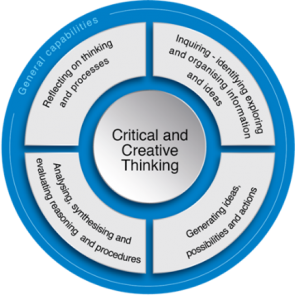
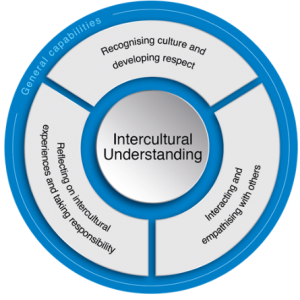
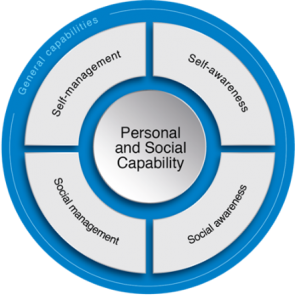
Cross Curriculum Priorities
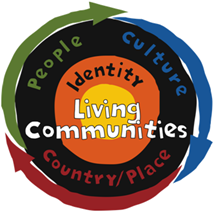
Science
In the Australian Curriculum: Science, the Sustainability priority provides contexts for investigating and understanding chemical, biological, physical and Earth and space systems. Relationships including cycles and cause and effect are explored, and students develop observation and analysis skills to examine these relationships in the world around them. They understand the importance of using science to predict possible effects of human and other activity and to develop management plans or alternative technologies that minimise these effects.
Suitable for children R/K-7
The presenters of the Silly Scientist are registered teachers and professional Childrens’ Entertainers, performing over 200 shows in schools Australia wide per year.
Our fantastic team of energetic presenters break down the stereotypes of what it is to be a scientist, and help to promote positive attitudes towards science through fun experiments and hilarious and interactive activities.
With a fresh and engaging approach to motivating and inspiring children to explore and gain confidence in science, the values included also translate into other areas of learning.
Thank you for considering “The Silly Scientist Show” for your students. We look forward to supporting your School Science Curriculum.
The Australian Music Show was a fantastic mix of comedy and music that had the children enthralled and amazed the entire performance. They left the show buzzing wanting more.
Wanguri Primary, Darwin
Wow! How fantastic to see our students so excited about science! I have a whole class asking to re-create the fun experiments they saw in the show and the presenters were outstanding. Can’t wait to have the show back in 2016.
Marmion Primary School, WA
This show is outstanding!!!! the children were completely engaged and absorbed —- highly recommended- Nadia Pasquini St Joseph’s School,
Hectorville, SA
To see such enthusiastic presenters and watch the children being totally engaged was fantastic. It was a combination of fascinating experiments and interactive songs and skits. A brilliant presentation.
Clifton Hills Primary, Kelmscott, WA.
We were amazed by the Silly Scientist, such an absorbing, interactive show. The children and teachers alike were engaged the whole time. The presenters had such a brilliant rapport with us all, we’d have no hesitation in recommending the Silly Scientist, it’s simply brilliant.
St Mary’s College, Mackay QLD
“Seeing the children so engaged and enthusiastic for the duration of the show was brilliant. It’s been two weeks since the performance and the children haven’t stopped talking about it!”
James Meiksans. St Pius X, Windsor Gardens
“What a fantastic show. Great to see the presenters involving the teachers with the children throughout the presentation! Such a good message delivered to the children about wellbeing, having a go and getting along”.


